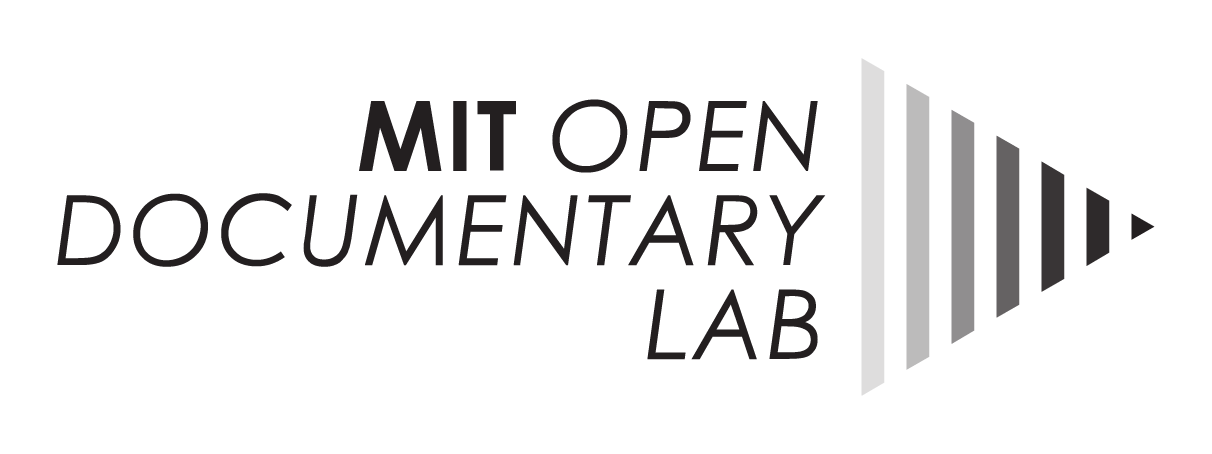09 Sep Introducing OpenDocLab 2019-2020 Fellows
Each year, the MIT Open Documentary Lab hosts a limited number of distinguished artists, creative technologists, and scholars who want to engage deeply with the new documentary storytelling techniques and technologies in a collaborative and interdisciplinary environment. We are excited to welcome the following 14 new and returning Fellows for the 2019-2020 academic year.
Please join us in welcoming our new fellows:
Joshua Glick is an Assistant Professor of English and Film & Media Studies at Hendrix College and affiliate faculty at Columbia University, where he teaches in their Global Core. This year, Glick will be co-editing a volume with Patricia Aufderheide that brings scholars and practitioners into dialogue around the ethics, economics, and aesthetics of nonfiction media. He will also be researching a new book project on contemporary documentary and the media industries as well as collaborating with the flagship PBS series POV on a digitization and community outreach initiative.
David Green is a documentary-maker and computer scientist with research interests in documentary, human-computer interaction, digital making, co-creativity and open design. This year, he will work on his ongoing “Virtual Realities: Immersive Documentary Encounters” research project, which will include developing ‘design fictions’ for a workshop series that explores the ethics of VR documentaries and writing up a series of ‘VR documentary experience sessions’ and focus groups.
Tara Roberts is a journalist, storyteller and changemaker. Recently, she received a grant from National Geographic to follow and dive with a group of Black scuba divers, historians and archaeologists who are searching for slave shipwrecks around the world. This year, her goal is to transform that epic adventure into a cool and innovative long-form narrative.
Please join us in welcoming our returning fellows:
Nadav Assor is an Associate Professor of Expanded Media at Connecticut College’s Studio Art department and is the Associate Director of the Ammerman Center for Arts and Technology there. This year, he will continue to work on a multi-platform documentary project he is codirecting with Tirtza Even, entitled “Chronicle of a Fall”. The project depicts the fragmented experiences in the US of a scattered group of immigrant cultural workers from the Middle East and Latin America.
Kathy Bisbee is the executive director at the Public VR Lab, a nonprofit project of the Brookline Interactive Group (BIG). Through her work there, Kathy is building an inclusive grassroots field for Community XR, creating curriculum, research, train-the-trainer programs, and best practices for XR in the public interest. This fall, Kathy and her team are completing the second prototype (in Unity) for “Arrival VR”, the first nationally created XR storytelling project gathering and curating immigration/migration stories of Americans (pre-1620 through 2019) and incorporating them into a visual XR/VR immersive timeline.
Halsey Burgund is a sound artist and technologist whose work over the past decade has focused on the use of publicly-sourced spoken voice recordings and musical audio AR installations. He is the developer of Roundware, the open source contributory audio AR platform, which has been used to create installations for cultural organizations internationally and the co-founder of AudioAR.org. This year, Halsey will primarily be working on further developing Roundware as well as producing a project at the Manzanar Historic Site on Japanese incarceration during WWII.
June Cross is a professor at Columbia University’s Graduate School of Journalism, where she founded a program in journalistic documentary. This year, she will be working on developing an interactive web version of her project “Casting the Vote”.
Andrew Demirjian is an interdisciplinary media maker who creates experimental assemblages of image, sound and text. This year, he will continue developing a software and methodology called ANATTĀ that can assist in looking closer at media culture to provide insights into language patterns in large volumes of video.
Rachel Devorah is a sonic cyberfeminist interested in the affordances of immersive audio in the exchange of situated knowledge. This year, she will continue developing an immersive audio work, Radiant Drift, that uses hydrophone recordings she made of her cervix while pregnant with her daughter.
Charity Everett is a creative technologist, storyteller, and performer. This year she will continue developing her project Go Back Fetch It, which explores storytelling in augmented reality by pairing traditional storytelling techniques, new technology, history, data visualization, dance, and interactivity to create a stylized narrative art episodic project that will push the boundaries of interactive narrative and immersive documentary.
Rus Gant directs the Visualization Research and Teaching Laboratory at Harvard. This year, he will continue to work on his VR documentary “The 39,000 year history of VR”, which tells the story of how we moved from the immersive art of the caves at Lascaux to modern virtual reality filmmaking. He will also begin working on another VR project called “Les Femmes du Future”, a look at how women’s fashion and technology have continually shaped the future.
Danny Goldfield is a commercial photographer, filmmaker, and designer. This year, he will continue to develop his project about e-commerce called “Unbeatable Ideas for Sale.” He will also be documenting the MIT Mechanical Engineering class, 2.009 Product Engineering Processes, to produce a non-linear experience that will make this iconic class universally accessible online.
Sandra Rodriguez, PhD, is a creative director and sociologist of new media technology. Pushing innovative projects in VR/XR, she leads the MIT HackingXR class (CMS.339) and Speaker Series, in collaboration with the Open Doc Lab. This year, she will pursue her work on Chomsky vs Chomsky, an XR experience that explores the sparks that fly at the crossroad of artificial intelligence and human creativity.
Carles Sora is a digital culture scholar at the Department of Communication of Pompeu Fabra University and a new media artist from Barcelona. This year, he will continue to research the social impact of interactive and immersive documentaries. He will also create a conceptual framework for what he defines as “Community StorySpaces”: digital documentaries that encourage community dialogue.



